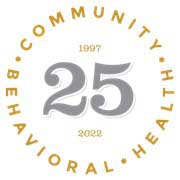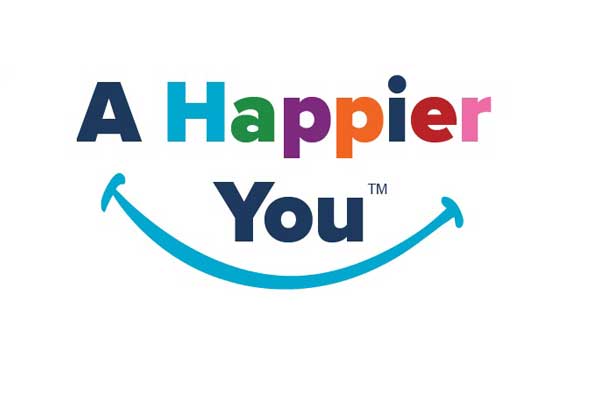A Happier You Program Offered at Community Behavioral Health
April 7, 2023Positive psychology interventions can offer an important source of well-being support for healthcare workers, who often face considerable challenges and stressors in their
work. Rather than focusing on problems, these interventions amplify a person’s strengths,
positive experiences, and meaningful connections with others.
 This spring, PCOM’s Master of Applied Positive Psychology program has partnered with Community Behavioral Health (CBH) to provide a unique
version of positive psychology-based wellness for their employees.
This spring, PCOM’s Master of Applied Positive Psychology program has partnered with Community Behavioral Health (CBH) to provide a unique
version of positive psychology-based wellness for their employees.
The 7-week program called A Happier You is a virtual group program facilitated by MAPP students that helps participants develop
resilience skills through a variety of positive psychology pathways. These pathways include spotlighting positive daily events, practicing gratitude,
identifying and using personal strengths, and finding the lighter side of life.
Offering A Happier You is part of CBH’s commitment to helping its employees thrive
as they provide behavioral health support for the city’s 420,000 Medicaid recipients.
Positive psychology programs like A Happier You have shown promise in reducing symptoms of depression, anxiety, burnout, and stress. They also have been associated with
increased job and life satisfaction, self-compassion, relaxation, and resilience.
 The benefits of programs like A Happier You extend beyond workers’ mental health.
According to research, perceived wellness support at work is associated with increases
in productivity. Employers offering workplace wellness programs can also improve job satisfaction.
The benefits of programs like A Happier You extend beyond workers’ mental health.
According to research, perceived wellness support at work is associated with increases
in productivity. Employers offering workplace wellness programs can also improve job satisfaction.
Research on the ROI of employee wellness programs reveals medical and absenteeism cost savings of $3.27 and $2.73, respectively, for
every dollar spent. Taken together, this represents a 6-to-1 return on investment.
Moreover, positive psychology interventions in the workplace are low cost and easy
to deliver, with virtual group programs like A Happier You offering access to both
remote and in-person workers.
Remote work, while supporting work-life balance, can also increase feelings of stress, social isolation, and depression. After A Happier You sessions, CBH participants have noted that, in addition to adopting
a more positive mindset, they’ve enjoyed the opportunity to connect with co-workers
in a fun way. Two staff returning this spring said that they became close friends
after meeting in a previous A Happier You session.
Delivering A Happier You creates a warm, inviting, happiness-reinforcing environment
for both participants and facilitators. One activity called “Happiness Bookmarks”
asks group members to bring in something that makes them smile and share something
about it. MAPP student facilitators model this by sharing a bookmark of their own.
The personal shares are often juxtaposed with research that supports each session’s
positive psychology pathway. In this way, A Happier You creatively combines psychoeducational,
experiential, and group process components.
“The multimodal training model is essential to the program’s success,” says Scott Glassman, PsyD, director of the Master of Applied Positive Psychology program at PCOM.
The MAPP program features A Happier You as a practicum experience for its students.
Students progress from being a participant to an intensive 13-week facilitator training
to co-facilitating the program in the community under the supervision of Dr. Glassman.
MAPP students also take a certification exam at the end of their practicum to assess
their mastery of the curriculum and facilitation process.
According to Glassman, several of his students have expressed excitement about bringing
A Happier You into their workplaces after graduation.
"As MAPP students reach the end of their immersive journey in positive psychology,
elevating the well-being of an organization like CBH, they now really feel the potential
of creating happier workplaces on a broader scale," he said.
You May Also Like:

 This spring, PCOM’s
This spring, PCOM’s  The benefits of programs like A Happier You extend beyond workers’ mental health.
According to research, perceived wellness support at work is associated with increases
in
The benefits of programs like A Happier You extend beyond workers’ mental health.
According to research, perceived wellness support at work is associated with increases
in 